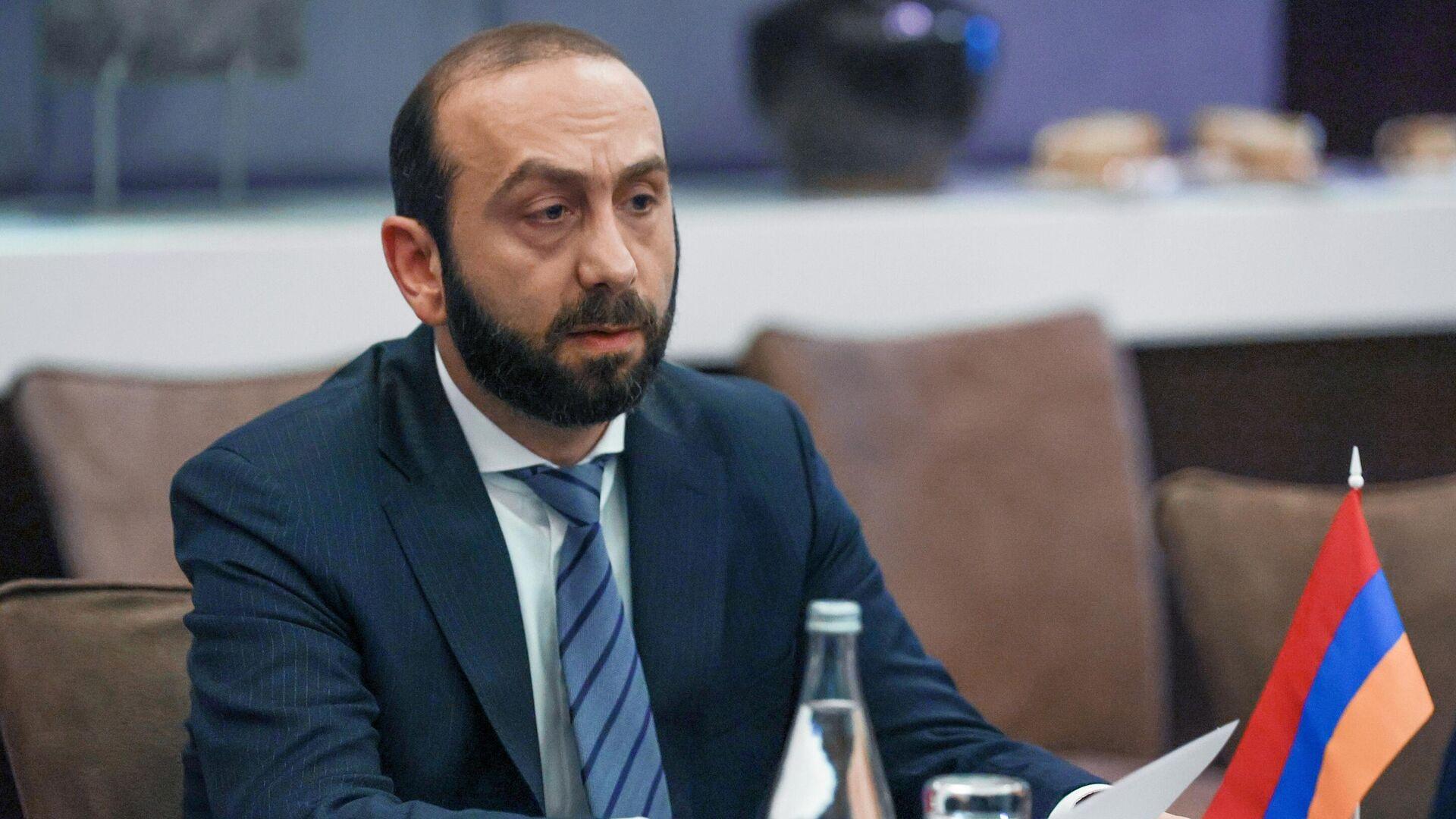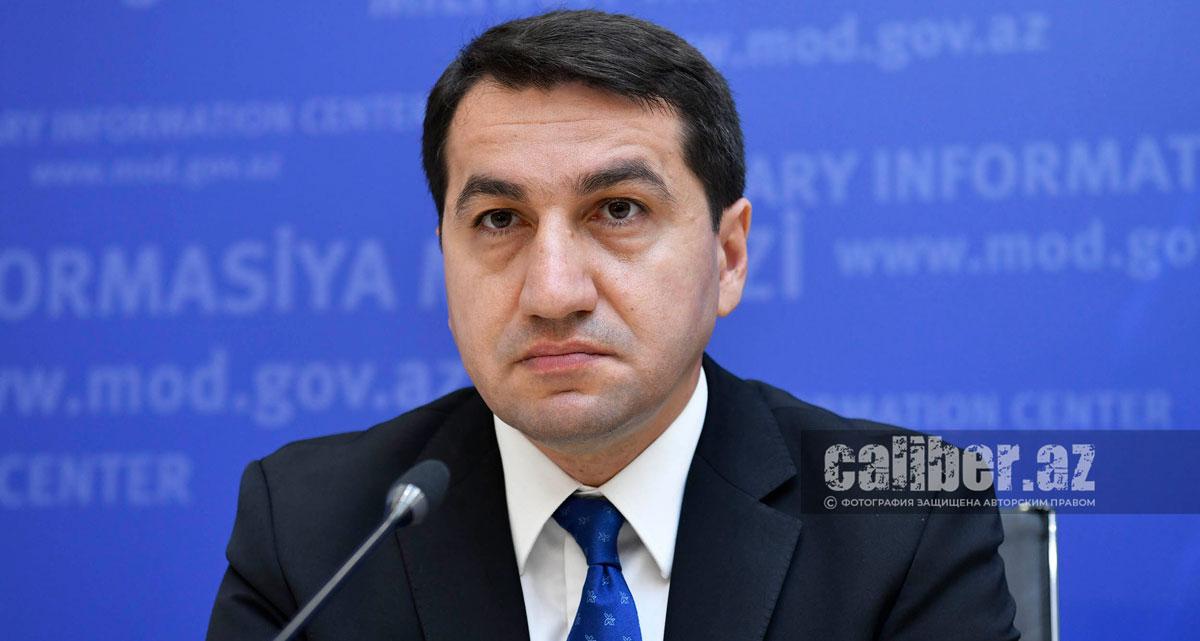Armenia’s cop-out at COP29 Dodging responsibility and dialogue
Hikmet Hajiyev, Azerbaijani presidential aide stated during a press conference at COP29 that "Azerbaijan, as a member of the convention, extended invitations to all parties." However, representatives from Armenia did not attend the event.
Their absence has not been met with any particular regret. While the conference is primarily focused on climate change and green energy, it also offers a convenient venue for addressing a broader range of issues. In the informal discussions that often take place during such events, matters unrelated to the main agenda could have been raised, such as "when will Armenia amend its Constitution?" "When will the Azerbaijanis expelled in 1987 be allowed to return to Armenia?" and "How much longer must Azerbaijan wait for the opening of the Zangezur Corridor?"
Although Armenia did register to attend COP29, it has yet to provide any information regarding the composition of its delegation. This delay is consistent with the familiar pattern of indecision. Armenia appears to be stalling, waiting for direction from its external patrons. Such dynamics are not new; at times, countries with competing interests divide influence in a region, agreeing on spheres of control, sharing resources, and making decisions based on mutual consent.
The actions of Armenia in this regard are predictable, as they will likely follow whatever instructions they receive from their allies.
On November 11, Armenia's Deputy Foreign Minister Vahan Kostanyan stated in the Armenian parliament that Armenia's participation in the UN climate conference (COP29) in Azerbaijan depends on the dynamics of negotiations between Yerevan and Baku. "Once we make a final decision, we will inform the public whether we will participate and at what level," said Kostanyan.
Earlier, Armenia's Foreign Minister Ararat Mirzoyan confirmed that Armenia had officially received the invitation but had not yet expressed its position, as it needed to understand the details of the event.

Meanwhile, Prime Minister’s Chief of Staff Arayik Harutyunyan suggested that several factors, including significant progress on a peace treaty, could influence the decision to attend the conference in Baku.
This excuse appears to be a typical stalling tactic: "We haven’t decided yet because we need to fully understand what this is about." In reality, it reflects a common strategy of deflecting responsibility and avoiding a clear stance. To clarify, here’s a brief explanation of what’s truly at stake:
The conference will be held in three formats: the first involves official negotiations where documents related to the UN Framework Convention on Climate Change (UNFCCC) are adopted; the second consists of statements from countries and speeches by their senior officials (this is the most interesting and important part, where specific figures and details regarding emissions, adaptation, and financing will be presented); and the third format includes unofficial events, such as programs from the UNFCCC Secretariat, country and organizational pavilions, where a wide range of issues will be discussed, from scientific and environmental challenges to critical assessments of the actions of countries, companies, and financial institutions. It is also here that declarations and initiatives will be made. These unofficial events will serve as a platform for strengthening cooperation, initiating partnerships, joint projects, and expressing views on the progress and documents of the COP.
It seems all quite clear, provided there’s a willingness to engage, because "what this is about" can be found with just a couple of clicks on Google. But as previously mentioned, Armenia is stalling, trying to avoid uncomfortable questions, and waiting for approval from its backers.
As for the "dynamics of negotiations between Yerevan and Baku," this has nothing to do with COP29. First, it is not Azerbaijan’s event, but a UN conference. Second, all participating countries at such a high-level conference receive solid state guarantees for their security, so there’s no need to fear. Had the Armenian delegation confirmed its participation in COP29, they would have been welcomed, fed, shown the sights, and a broad range of issues, including "what Armenia must do for a peace agreement to be signed in the near future," would have been discussed.
These points have been raised on multiple occasions—those who are attentive will understand, and those who are observant will see. Therefore, there is no need for deceit; in the end, Armenia’s participation or absence from COP29 has no impact. Fewer participants mean more room for meaningful dialogue—there are no hard feelings. An official invitation was extended, and if the Armenian delegation chose not to attend, that was their decision.

Returning to the words of Azerbaijan’s Presidential Assistant Hikmet Hajiyev: "The Armenian side was invited as a participant in the conference and had the opportunity to take part as a party. In any case, this is Armenia’s own decision. I would like to emphasize once again that Azerbaijan has fully met its obligations as a member of the convention and has created all conditions for all countries to hold necessary and result-oriented discussions. However, Armenia and associated circles are actively engaged in a counterpropaganda campaign against Azerbaijan."
This reflects typical Armenian deception—nothing particularly sophisticated, more like "What dynamics? What’s this about? In essence, Armenia is once again dodging the issue.
In the grand scheme, these are minor and insignificant details that don’t really affect the bigger picture. The key point is that the President of Azerbaijan announced the creation of a "green energy" zone in the liberated territories of Azerbaijan and approved an action plan for 2022–2026. By 2050, the goal is to transform these reclaimed lands into a zone with "net-zero emissions.








